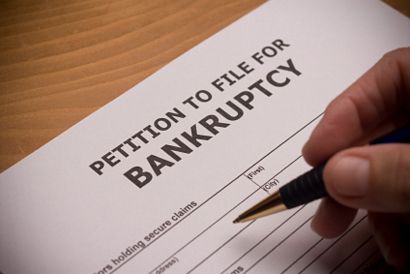 As the economy is steadily improving, middle class families are feeling the effects. According to Manilla.com, a financial organization website, total household debt- which includes outstanding mortgage, auto and college loan balances-fell 1.1% in the first quarter of this year among middle-class families. Overall, consumers are being more cautious before taking on new debts for major investments like homes, automobiles and education. Americans average mortgage debt was $150,200.21 as of July 1, down 4% since the end of 2012. Below are the top 10 cities with the highest mortgage balances:
As the economy is steadily improving, middle class families are feeling the effects. According to Manilla.com, a financial organization website, total household debt- which includes outstanding mortgage, auto and college loan balances-fell 1.1% in the first quarter of this year among middle-class families. Overall, consumers are being more cautious before taking on new debts for major investments like homes, automobiles and education. Americans average mortgage debt was $150,200.21 as of July 1, down 4% since the end of 2012. Below are the top 10 cities with the highest mortgage balances:
• San Francisco: $312,301.64
• Los Angeles: $262,792.56
• San Diego: $258,548.22
• New York: $250,078.12
• Washington, D.C.: $226,444.31
• Seattle-Tacoma: $199,205.30
• Sacramento: $194,796.46
• Portland, Ore.: $176,452.78
• Boston: $176,350.70
• Miami-Ft. Lauderdale: $176,057.60
Auto loan balances have increased by 7.9% since the end of 2012, Manilla.com reports, because Americans are now willing to spend more on cars, which signals a stronger economy. Eight of the 10 markets with the highest auto loan balances remained consistent in the first half of 2013. The worst debt offenders for auto loans as of July 1 are:
• Little Rock-Pine Bluff: $17,797.82
• Houston: $17,078.08
• Miami-Ft. Lauderdale: $16,997.15
• New Orleans: $16,968.24
• New York: $16,672.47
• Memphis.: $16,538.02
• Birmingham.: $16,436.04
• Las Vegas: $16,294.38
• Waco-Temple-Bryan: $16,263.03
• San Antonio: $16,164.34
If you are in a financial crisis and are considering filing bankruptcy, contact an experienced Miami bankruptcy attorney who can advise you of all of your options. As an experienced CPA as well as a proven bankruptcy lawyer, Timothy Kingcade knows how to help clients take full advantage of the bankruptcy laws to protect their assets and get successful results. Since 1996 Kingcade & Garcia, P.A. has been helping people from all walks of life build a better tomorrow. Our attorneys’ help thousands of people every year take advantage of their rights under bankruptcy protection to restart, rebuild and recover. The day you hire our firm, we will contact your creditors to stop the harassment. You can also find useful consumer information on the Kingcade & Garcia website at www.miamibankruptcy.com.



 The popular credit monitoring site, TransUnion reports the rate of credit card payments that are at least 90 days overdue fell in the second quarter to 0.57%, the second-lowest recorded by the agency in nearly 20 years, when the rate was 0.56%. More Americans are working to bring down their credit card balances as the U.S. credit card delinquency rate fell close to the lowest levels since 1994. The trend is positive, and according to experts may be a sign that the worst is behind for cardholders post-recession.
The popular credit monitoring site, TransUnion reports the rate of credit card payments that are at least 90 days overdue fell in the second quarter to 0.57%, the second-lowest recorded by the agency in nearly 20 years, when the rate was 0.56%. More Americans are working to bring down their credit card balances as the U.S. credit card delinquency rate fell close to the lowest levels since 1994. The trend is positive, and according to experts may be a sign that the worst is behind for cardholders post-recession.  The Detroit Democrat has reported that the forum planned by U.S. Representative John Conyers on the legal implications of Detroit’s bankruptcy filing will be re-scheduled to 3 p.m. on Saturday at Fellowship Chapel in Detroit. Conyers has said the forum will examine the filing’s impact on pensions and possible conflicts of interest involving state-appointed emergency manager, Kevyn Orr.
The Detroit Democrat has reported that the forum planned by U.S. Representative John Conyers on the legal implications of Detroit’s bankruptcy filing will be re-scheduled to 3 p.m. on Saturday at Fellowship Chapel in Detroit. Conyers has said the forum will examine the filing’s impact on pensions and possible conflicts of interest involving state-appointed emergency manager, Kevyn Orr.  The Federal Housing Administration (FHA) is offering a homeownership program that will put previously troubled borrowers on the fast track to owning a home, again. This new program, called “Back to Work-Extenuating Circumstance,” shortens the standard three-year waiting period to 12 months. As part of the FHA’s ongoing mission, the new program aims to make sure that qualified borrowers are not being unnecessarily shut out of the housing market.
The Federal Housing Administration (FHA) is offering a homeownership program that will put previously troubled borrowers on the fast track to owning a home, again. This new program, called “Back to Work-Extenuating Circumstance,” shortens the standard three-year waiting period to 12 months. As part of the FHA’s ongoing mission, the new program aims to make sure that qualified borrowers are not being unnecessarily shut out of the housing market.  So you have considered all your options, examined your finances and have come to the conclusion that bankruptcy is the right option for you. It is important to remember that filing for bankruptcy is a process, not an event. What you do before, during and after the filing will affect your future. RELAX… You are on the path to a financial fresh start!
So you have considered all your options, examined your finances and have come to the conclusion that bankruptcy is the right option for you. It is important to remember that filing for bankruptcy is a process, not an event. What you do before, during and after the filing will affect your future. RELAX… You are on the path to a financial fresh start!  According to a recent article in the Sun-Sentinel, 69 percent of all South Florida home sales last month were cash deals. Across the state, 66 percent of home sales were cash, compared with the national rate of 40 percent- which many housing experts are calling “astounding.” With one of the nation’s highest foreclosure rates, South Florida has a large supply of bank-owned properties.
According to a recent article in the Sun-Sentinel, 69 percent of all South Florida home sales last month were cash deals. Across the state, 66 percent of home sales were cash, compared with the national rate of 40 percent- which many housing experts are calling “astounding.” With one of the nation’s highest foreclosure rates, South Florida has a large supply of bank-owned properties.